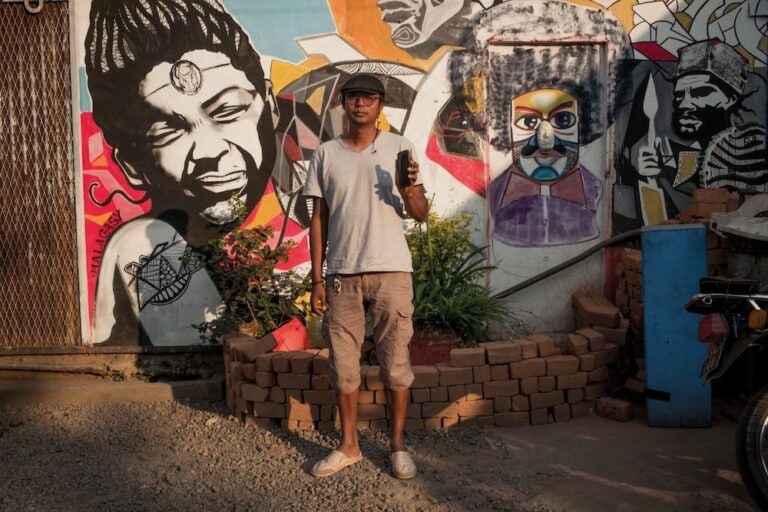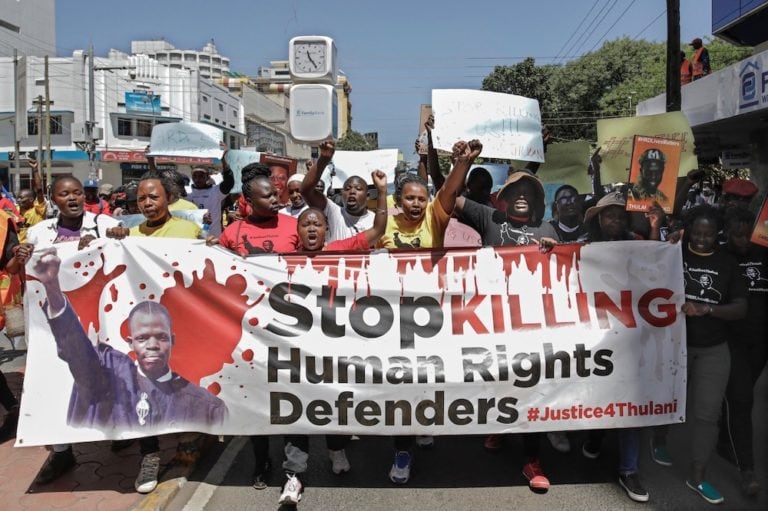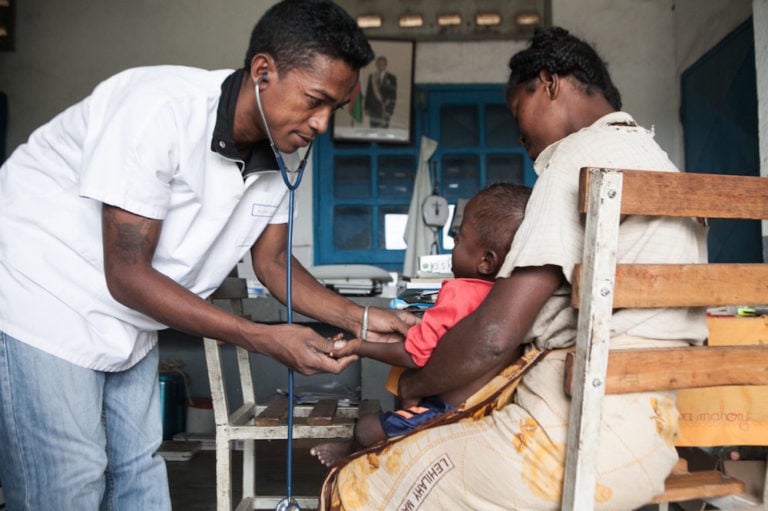The communication minister reacted to the airing of the message by saying Free FM was "liable to be prosecuted for complicity in an attack on state security."
(RSF/IFEX) – 24 July 2012 – Reporters Without Borders deplores the fact that Free FM, an opposition radio station based in Antananarivo, has been off the air for the past two days after angering Andry Rajoelina’s transitional government by broadcasting a message by mutinying soldiers that announced the “dissolution of the current state institutions.”
In a Facebook post on the evening of 22 July, Free FM director Lalatiana Rakotondrazafy wrote: “For the safety of its employees and its equipment, Free FM has decided to suspend its broadcasts (. . .) we take responsibility for this decision.”
“It is regrettable that the political tug-of-war of the past few months between the transitional authorities and radio Free FM has resulted in a suspension of broadcasting by what is the last opposition radio station,” Reporters Without Borders said. “We urge the two sides to enter into a dialogue as the only way to avoid further loss of freedom of information in the political crisis that has been going on for more than three years.
“With the two main protagonists of this crisis – transitional leader Andry Rajoelina and ousted president Marc Ravalomanana – due to meet this week, it is crucial that Free FM should be able to resume broadcasting without being exposed to danger and with its presenters acting with the appropriate caution and responsibility.”
The mutiny by soldiers early in the morning on 22 July led to clashes at the base of the 1st Intervention Forces Regiment (RFI) near Antananarivo international airport at Ivato. As a safety measure, the airport was closed and all flights were suspended. The mutiny was eventually put down.
Immediately after the start of the mutiny, Free FM broadcast a communiqué by the mutineers announcing the suspension of political institutions and the “creation of a military directorate.”
Communication minister Harry Laurent Rahajason, a former journalist better known by the pen-name of Rolly Mercia, reacted by announcing that Free FM was “liable to be prosecuted for complicity in an attack on state security (. . .) spreading false reports and inciting hatred and revolt.”
In the wake of the communication minister’s statement, soldiers loyal to the transitional government raided the station and disconnected its electricity supply. After realizing it was still broadcasting, the solders went back at around 7 p.m. to seize the station’s broadcast equipment. The equipment had already been moved to safe location as a pre-emptive measure, according to Rakotondrazafy, who nonetheless finally decided to “turn off the microphones.”
According to Agence France-Presse, between 3,000 and 5,000 people responded to a call from Free FM last May to march in protest against the government and threats to close the station. The police used violence to disperse the demonstration, which was not authorized.
At the start of May, Rakotondrazafy and her colleague, Fidèle Razarapiera, spent 24 hours in police custody and were charged with defamation, broadcasting false information and inciting hate. Their arrests came shortly after the station received two formal warnings from the Special Commission for Broadcasting Communication (CSCA).
There have always been doubts about the independence of the CSCA, a regulatory authority headed by the communication minister.
Free FM’s plight recalls that of Viva TV, a station owned by Rajoelina, now the transitional president, which was forcibly closed before the 2009 political upheaval. Rajoelina’s media company immediately reacted by creating a talk show called “Anao ny Fitenenana” (You have the word), that was virulent in its criticism of the then government and was hosted by Rakotondrazafy, Razarapiera, Rahajason and another journalist, Soavina Ralaisoavamanjaka.
The team of presenters was finally disbanded a few months after the High Transitional Authority’s creation. Some of them joined the new government, others joined the opposition.
Madagascar has been hard pressed to recover a degree of stability because of the failure of negotiations between the various political parties and because of sporadic mutinies and demonstrations. Elections have been postponed three times since May 2011. A new date is to be set in an electoral timetable due on 1 August.


